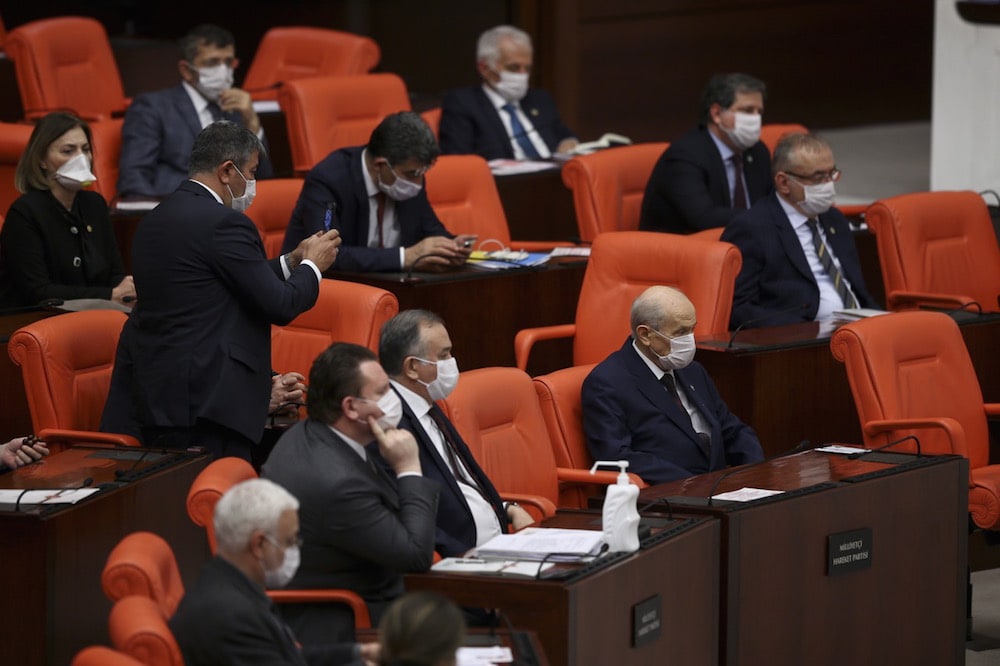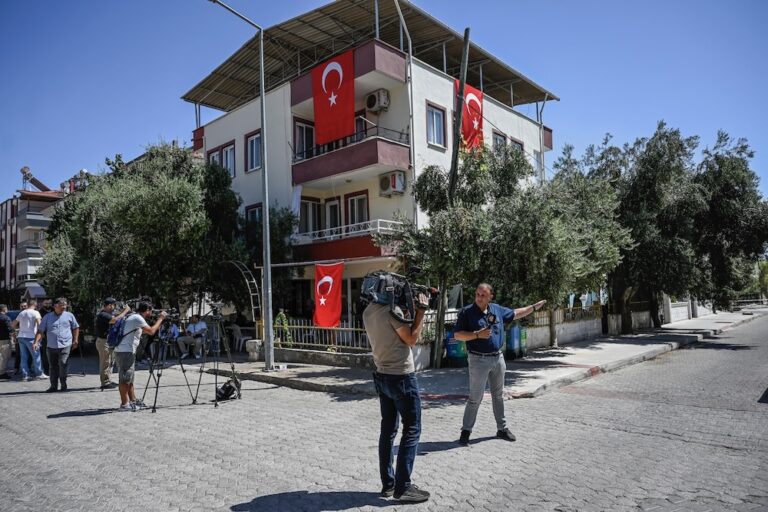Amendments that ostensibly aim to protect prisoners from COVID-19 by reducing the prison population do not cover those detained on terrorism-related charges. Journalists, politicians and rights defenders who are in pre-trial detention, or who have been sentenced, will remain behind bars.
This statement was originally published on expressioninterrupted.com on 14 April 2020.
The Turkish Parliament on 14 April passed a bill jointly drafted by the ruling Justice and Development Party (AKP) and the Nationalist Movement Party (MHP) and proposing a reduction in sentences for certain convictions through a set of permanent amendments to the Law on the Execution of Penalties and temporary amendments to regulations on probation. However, convictions on “terrorism-related” charges and convictions that have not been upheld are excluded in the act.
The government claims the act, introduced as part of its Judicial Reform Strategy, is aimed at protecting jailed persons from the COVID-19 outbreak by reducing the prison population. However, while about 90,000 people convicted of ordinary crimes will be released from prisons under the act, journalists, politicians, rights defenders and others who are currently in pre-trial detention or serving sentences on “terrorism” charges will remain behind bars.
A total of 279 lawmakers from AKP and MHP voted in favor of the bill while 51 lawmakers from the opposition Peoples’ Democratic Party (HDP), Republican People’s Party (CHP) and the İyi Party voted against the bill. The law will come into effect once it is signed by the President and published in the Official Gazette.
Opposition lawmakers who asserted that the bill was not fair and that it should be expanded to also cover political prisoners, journalists and others who are jailed on “terrorism” charges submitted dozens of motions proposing amendments to the bill, but they were rejected by AKP and MHP lawmakers, who hold the majority of the 600-seat General Assembly.
Through a last minute motion, violations of the Law on the State Intelligence Services and the National Intelligence Organization (MİT) were also excluded from the bill and those charged with these offenses will also not be eligible for early release.
The law introduces a set of 70 amendments to 11 different provisions. Under the new act, the period of probation for certain crimes committed before 30 March 2020, which is normally one year, will be increased to three years. In addition to “terrorism” charges, offenses not eligible for reduction in penalities or increased probation terms are murder, and sexual and drug-related offenses. Prisoners who are not convicted of one of these charges will be eligible for early release or transfer to house arrest depending on the length of their sentence. Through the amendment, the period of sentences to be served in prison for offenses other than the ones cited above will be reduced by half.
Under temporary measures introduced with the law, prisoners over 65 years of age, women with young children and prisoners with serious illnesses will be eligible for temporary release under house arrest. Those currently serving their sentences in an open prison will be eligible for house arrest until 31 May 2020. This period can be extended three times by up to two months by the Justice Ministry.
Overcrowding in Turkey’s prisons has been a long-standing problem. Currently there are about 300,000 people in Turkey’s prisons, although the capacity is about 220,000. Justice Minister Abdülhamit Gül confirmed on 13 April that three inmates in open prisons have died of Covid-19 while 14 others in five different open prisons tested positive. The minister also said that 79 prison staff tested positive for the disease.



